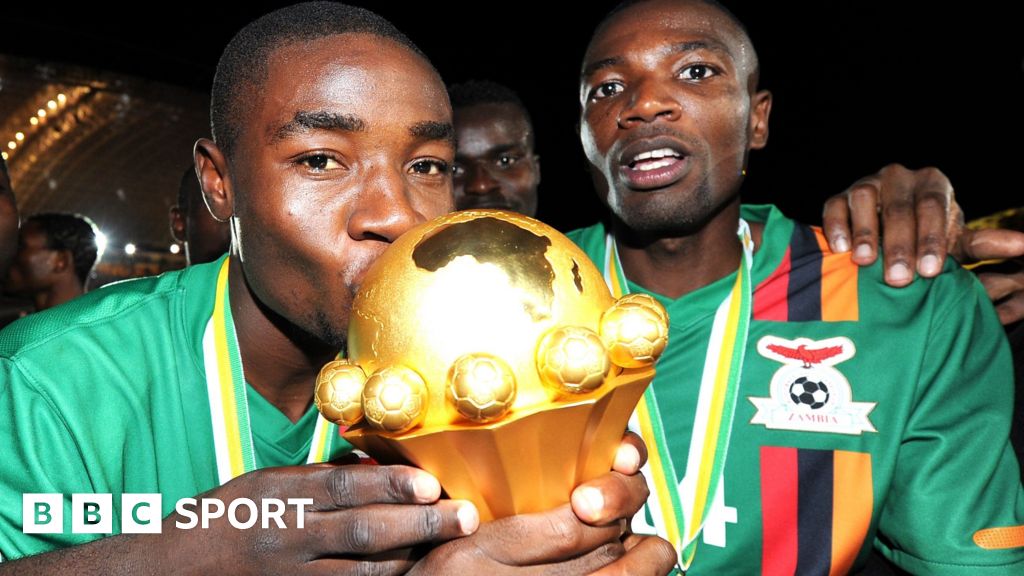The 1993 air crash that decimated Zambia's national football team, and how the nation's spirit endured.
For the people of Zambia, their national football team, known as the Chipolopolo - "Copper Bullets" - was a beacon of hope in a time of hardship. The country's primary export, copper, had suffered a drastic price decline, causing economic turmoil. Income levels plummeted, leading to a declared national state of emergency by President Frederick Chiluba due to alleged coup attempts. Yet, amidst this adversity, the Chipolopolo remained a source of national pride.
The team had recently returned from a triumphant 3-0 victory over Mauritius in an Africa Cup of Nations qualifier, and were on an eight-year unbeaten run at home. They were a formidable force, a brotherhood at the peak of their powers, and hopes were high for qualification for the 1994 World Cup in the USA. To achieve this, they had to secure victory over Morocco and Senegal in a series of home and away matches.
Their first away fixture was against Senegal, and as was customary due to the country's financial constraints, they were due to travel by military plane. A DHC-5 Buffalo, a twin-propeller aircraft aged 18 years and used in Vietnam War-era operations, was their transport of choice. Due to its limited range, the Buffalo required regular refuelling stops on the long journey, and its age was becoming increasingly apparent. Just six months prior, during a flight to Madagascar, the pilot had advised passengers to wear their life jackets.
Upon arriving at the airfield outside the capital city Lusaka, 21-year-old midfielder Andrew Tembo and third-choice goalkeeper Martin Mumba were surprisingly dropped from the squad. Despite the hurt and heated words exchanged on the tarmac, this routine selection decision would tragically alter the course of history.
The Buffalo embarked on a daunting itinerary, with planned refuelling stops in the Republic of Congo, Gabon, and Ivory Coast before finally landing in Dakar, Senegal. However, the plane never reached its destination. A full report on the incident has never been released by the Zambian government, but Gabonese authorities claimed that shortly after take-off from Libreville, the left engine failed. The pilot, fatigued from flying the team back from Mauritius the previous day, mistakenly shut down the right engine, leaving the heavy aircraft without power and plummeting into the ocean just a few hundred metres from the coast, killing all 30 people on board.
For Zambian footballer Kalusha Bwalya, who was playing in the Netherlands, the news of the crash was a devastating blow. âThere was a lady reading the news, and the Zambian flag was behind her," he recalls. "She said, âthe Zambian national soccer team traveling to Dakar, Senegal, for a World Cup qualifier has crashed. There are no survivorsâ."
The tragedy left a deep wound on the nation, extinguishing a youthful ambition and the spirit of a team that had been on the cusp of greatness. For Patrick Kangwa, the selection committee member who had sent the players on their way, the role of identifying the remains of his colleagues was a heart-wrenching responsibility. "The bodies had been in the water for some time so some had started to change in state," he says. "I had to try and say, whoâs this, who can this be? After that, I cried, we all cried. None of us thought that we would find ourselves in a place where we would see our colleagues in pieces."
On 2 May 1993, more than 100,000 Zambians gathered at Independence Stadium, the team's home ground, to mourn the loss of their heroes. The stadium's capacity of 35,000 could not accommodate the vast throng, forcing many to remain in the streets. Following a vigil and a service of remembrance, the players were laid to rest in a semi-circle of graves, each marked by a tree in a memorial garden called Heroes' Acre, located near the stadium.
Among the fallen were legendary figures like Godfrey Chitalu, the fabled goalscorer who had become the team's coach, and David 'Effort' Chabala, the goalkeeper who kept a clean sheet in Zambia's Olympic victory over Italy. Kelvin Mutale, a rising star who had scored a hat-trick against Mauritius just days earlier, also perished.
Kalusha Bwalya, reflecting on the loss of his teammates, says "Derby Makinka was one of the best players that Zambia has ever produced in the number six position; he was a tank. We had a world-class player in every position. I can still feel being in the changing room with the boys, I can still see the boys, how happy they were, and itâs a good past."
The crash of the Chipolopolo was a national tragedy, a devastating loss of talent and potential. The memory of these fallen heroes continues to inspire generations of Zambians, and their legacy remains a testament to the power of unity and the enduring spirit of a nation.
Article
Sports

Zambia's Copper Bullets: Tragedy and Triumph

